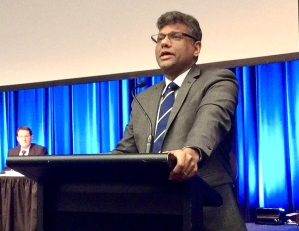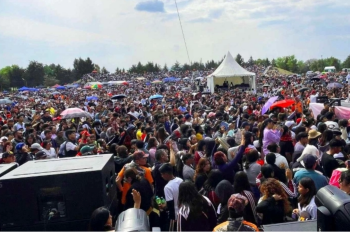
Anglican leaders in Australia expressed concern that the way a new law banning practices aimed at changing sexual orientation or gender identity is being implemented in New South Wales (NSW) state threatens Christians’ rights and could impose prison terms for following biblical teaching.
An NSW government press statement in April confirmed that under the NSW Conversion Practices Ban Act 2024, people in the Sydney Diocese and the rest of NSW state found guilty of performing “dangerous and damaging LGBTQ+ conversion practices” face up to five years in prison. State lawmakers passed the legislation in March 2024, and it took effect this year on April 4.
Leaders at the 53rd Sydney Anglican Synod meeting held Sept. 15-23 pointed out that NSW Premier Chris Minns had promised Christians that the law would pose no restrictions on prayer or preaching. Anti-Discrimination NSW, a state government body that administers the Anti-Discrimination Act 1977, has now undercut this pledge, Sydney Anglicans said in a press statement.
Bishop Michael Stead told the synod he fears he might fall foul of the law for the first time ever as a practicing Christian.
“I think for the first time in my life there is now a genuine possibility that I could breach the law in NSW for doing nothing more than teaching people what the Bible says about human sexuality, encouraging them to live in accordance with this and praying to that end,” Bishop Michael Stead told the synod.
A group of faith leaders worked extensively with the government to arrive at the legislation that went through the parliament so that it would not capture ordinary religious practices, “and we thought that we had achieved that through a series of exemptions,” Stead said.
“However, Anti-Discrimination NSW, which is handling the Act’s implementation, does not deliver on these promises,” he said.
Sydney Anglican leaders believed the law differentiated between sexual orientation and sexual activity, Stead reportedly said. They also thought the law would not prohibit teaching someone to abstain from sexual activity or prohibit receiving prayer for such an issue.
“We have been engaging extensively with Anti-Discrimination NSW since the Act came into force as to whether certain religious practices were conversion or suppression practices,” he said. “They said they cannot answer our questions and cannot give us guidance because no case law exists.”
Until case law appears, the state body intends to give maximal interpretation to definitions in the Act for the benefit of the LGBT community, for whom lawmakers created the act, he said.
“This means that they will accept all complaints that fall into the unknown, the grey zone, and wait for these complaints to work their way through systems of tribunals and courts to ultimately determine what is and isn’t a suppression practice,” Stead said.
People of faith face cumbersome legal processes when they deal with any legal investigation into their actions, regardless of the outcome, he added.
Archbishop Kanishka Raffel said in his opening address to the Synod that he would stand by any clergyperson or church worker who finds themselves before a tribunal or court “because of this poorly conceived law.”
“We must not allow anyone to silence or intimidate us from teaching God’s good plan for human sexuality and relationships,” Raffel said. “We will insist on the freedom to do so, respectfully but without fear. We will obey God.”
Noting that the Act purports to give churches, schools and parents permission to teach about sexual orientation, gender identity, sexual activity and religion,” Raffel asserted, “But, respectfully, we do not need the government’s permission to teach about such things.”
The NSW Conversion Practices Ban Act 024 intends to “ban practices that direct individuals to change or suppress their sexual orientation or gender identity, including by creating offenses and a civil complaints scheme in relation to the practices; and for related purposes.”
Delegates at the Sydney Synod applauded the archbishop’s speech and passed a resolution calling on the NSW government to honor Minn’s election commitment to protect religious freedom. Sydney Anglicans reported the law purported to protect religious freedom while outlawing gay conversion therapies, a practice the synod previously declared it opposes.
The NSW government, in a March 2024 press release, cited “the government’s continued commitment to supporting religious freedom.”
“The ban will not include expressing a belief through a sermon, taking offense at religious teachings, and seeking guidance through prayer,” added the NSW government release.
The Sydney Synod resolved that it “encourages Christians to be unafraid to proclaim the truth of God’s word in matters relating to sexuality, marriage, identity and gender, and to provide prayer for those who seek to live a godly life in obedience to God’s word and aligned with God’s purposes, notwithstanding that someone may file a complaint against them under the CPB Act for doing so.”
Additionally, the Sydney Anglican body “commends to parishes and organizations the work of Living Faith, as it seeks to provide biblical teaching, encouragement and support to Christian men and women who experience attraction to the same sex or gender incongruence as they seek to express their sexuality and gender in accordance with the historic Christian faith, and to assist parishes to welcome and love these men and women.”





